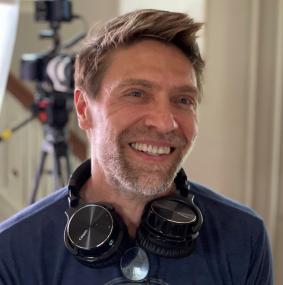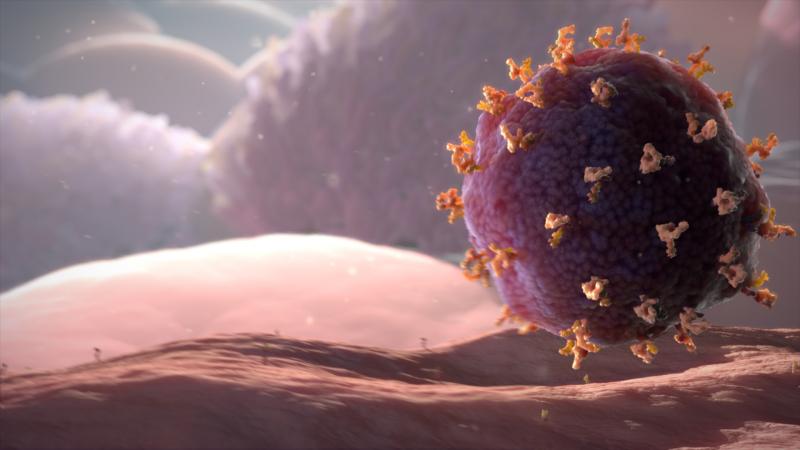Donald Rayne Mitchell

Donald Rayne Mitchell is founder and owner of Eyeline Pictures, LLC., and a member of the Medical History Pictures team. He has directed television commercials as well as dramatic narrative and documentary-style films, including HILLEMAN—A Perilous Quest to Save the World’s Children. Donald specializes in presenting complex medical information in a manner that general audiences can understand. Donald spoke to the VMP and explained how he combines science and art in filmmaking.
Explain how your career combines science and the arts.
Science doesn’t come easy to everyone unless it is presented in a way that makes it easy to understand. That’s my job; taking sometimes very complex scientific concepts or information and boiling it all down into a form that can be readily accessible to just about anyone, and at the same time entertaining. When I do my job well, viewers have so much fun that they don’t even realize they just learned something really cool about science.
How did you get your training?
In high school I knew I wanted to get into film production and after much thought, pursued an English major in college, so I could bring storytelling to the party. I learned much of the craft of filmmaking on the sets of TV commercial productions and began directing my own independent films in the 1990s. In the early 2000s, through one of the advertising agencies I was working with on commercials, I got the opportunity to direct a medical-science piece about Crohn’s disease and ulcerative colitis. At the time, I remember thinking that it seemed like a step backwards as far as my career was concerned. I was directing TV commercials at this point, getting some decent accounts and making pretty good money. So, it came as a surprise to me when we finished the Crohn’s piece, and I felt a real sense of fulfillment. In retrospect, I can appreciate that not only was I getting to use my skills around filmmaking, but I was also suddenly getting the opportunity to learn about complex medical and scientific issues and translating that information to a lay audience. So, in both the realms of film production and scientific understanding much of my training took place on the job.
What was easy or difficult about combining science and the arts?
The hardest part about combining science and the arts is sticking to the facts while trying to make something both accurate and entertaining. With dramatic narrative, filmmakers often bend the truth to make a story more compelling, even when one is telling a “true story.” But when scientific content is the focus, facts matter. So, the filmmaker has to be that much more creative to find compelling ways to move the story forward within the confines of the scientific facts.
What advice do you have for students interested in a career combining science and the arts?
People often assume that art is creative and science is rigid. Yet Einstein was one of the most creative thinkers of the 20th century, and Michelangelo carved David in marble. Throw assumptions out the window and look for the interests in your life that seem most opposed to one another, then get creative, and even scientific, about how to satisfy them. Virtually all of the great advances in life are born out of conflict. Most of us learn, or are taught to run, from conflict, so we never get to see the opportunities a conflict can present. Stop and pay attention to the conflicts and see what you can make of them.
What aspect of science was most surprising or exciting to you?
What’s most exciting to me about science is the discovery. I don’t say this to pretend that I’ve ever made a scientific discovery myself. I have not. But every time I learn something new that science has revealed to us through the hard work of great scientists everywhere, I get a thrill to glimpse the possibilities of what’s to come. And in line with that, I love the fact that science is self-correcting. For as brilliant as Einstein was, he didn’t want to believe that black holes could exist, even though his own Theory of Relativity predicted them. With science, it ultimately doesn’t matter what we believe. The evidence will eventually reveal the reality.

